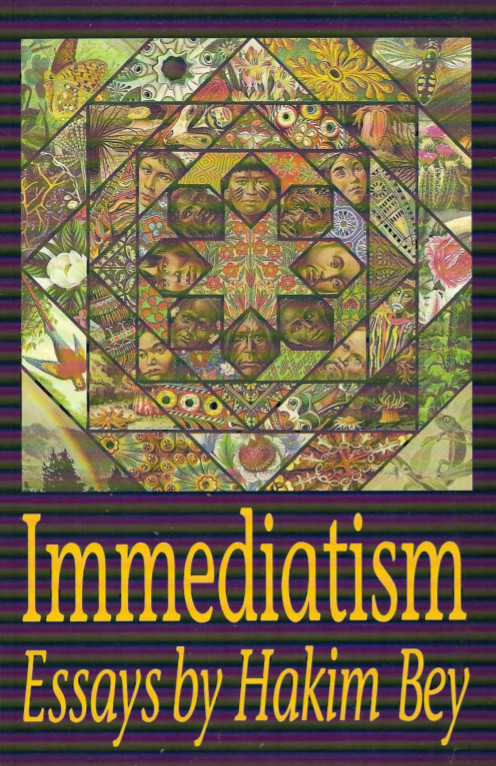John Mullarkey: Refractions of Reality: Philosophy and the Moving Image (2009)
Filed under book | Tags: · cognition, film, film theory, non-philosophy, ontology, philosophy, philosophy of film

Why is film becoming increasingly important to philosophers? Is it because it can be a helpful tool in teaching philosophy, in illustrating it? Or is it because film can also think for itself, can create its own philosophy? Indeed many film-philosophers claim that film does more than merely illustrate philosophical texts: rather, film itself can philosophize in direct audio-visual terms. Too often, however, when philosophers claim to find indigenous philosophical value in cinema, it is only on account of refracting it through their own thought: film philosophizes because it accords with a favoured kind of extant philosophy.
Refractions of Reality: Philosophy and the Moving Image is the first book to examine all the central issues surrounding the vexed relationship between the film-image and philosophy. In it, John Mullarkey tackles the work of particular philosophers and theorists (Žižek, Deleuze, Cavell, Bordwell, Badiou, Branigan, Rancière, Frampton, and many others) as well as general philosophical positions (Analytical and Continental, Cognitivist and Culturalist, Psychoanalytic and Phenomenological). Moreover, he also offers an incisive analysis and explanation of several prominent forms of film theorizing, providing a meta logical account of their mutual advantages and deficiencies that will prove immensely useful to anyone interested in the details of particular theories of film presently circulating, as well as correcting, revising, and re-visioning the field of film theory as a whole.
Throughout, Mullarkey asks whether the reduction of film to text is unavoidable. In particular: must philosophy (and theory) always transform film into pre-texts for illustration? What would it take to imagine how film might itself theorise without reducing it to standard forms of thought and philosophy? Finally, and fundamentally, must we change our definition of philosophy and even of thought itself in order to accommodate the specificities that come with the claim that film can produce philosophical theory?
Publisher Palgrave Macmillan, 2009
ISBN 0230002471, 9780230002470
282 pages
Hakim Bey: Immediatism (1992/1994)
Filed under book | Tags: · anarchism, art, desire, ontology, politics

“In this collection of essays, the insurrectionist theoretician Hakim Bey expounds upon his ideas concerning radical social reorganization and the liberation of desire. Immediatism is another lyrical romp through intellectual corridors of spirituality and politics originally set forth in his groundbreaking book, TAZ.”
First published as Radio Sermonettes by Libertarian Book Club, New York, 1992
Graphics by Freddie Baer
Publisher AK Press, Edinburgh/San Francisco, 1994
ISBN 1873176422, 9781873176429
Anti-copyright, the book may be freely pirated and quoted
59 pages
Gabriel Tarde: Monadology and Sociology (1893/2012)
Filed under book | Tags: · ontology, philosophy, sociology

Gabriel Tarde’s Monadology and Sociology, originally published in 1893, is a remarkable and unclassifiable book. It sets out a theory of ‘universal sociology’, which aims to explicate the essentially social nature of all phenomena, including the behaviour of atoms, stars, chemical substances and living beings. He argues that all of nature consists of elements animated by belief and desire, which form social aggregates analogous to those of human societies and institutions. In developing this central insight, Tarde outlines a metaphysical system which builds on both classical rationalist philosophy and the latest scientific theories of the time, in a speculative synthesis of extraordinary range and power.
Tarde’s work has only recently returned to prominence after a long eclipse. His work was an important influence on later theorists including Deleuze and Latour, and has been widely discussed in the social sciences, but has rarely been a focus of philosophical interest. The translator’s afterword provides an explication of the key ideas in the text and situates Tarde’s theory within the context of the philosophical tradition, arguing for the importance of the text as a highly original work of systematic ontology, and for its importance for contemporary theoretical debates.
Originally published as Monadologie et Sociologie in Essais et melanges sociologiques, Lyon, A.Storck / Paris, G. Masson, pp 309-389, 1895; which is a reworked and expanded version of an article published in 1893 as ‘Monads and Social Science’ (‘Les Monades et la Science Sociale’), Revue Internationale de Sociologie, vol. 1, no. 2, pp 157-173 and vol. 1, no. 3, pp 231-246.
Edited and translated by Theo Lorenc, with afterword and notes
Publisher Re.press, Melbourne, January 2012
Transmission series
ISBN: 978-0-9808197-2-4
Creative Commons license BY-NC-SA 3.0
105 pages

